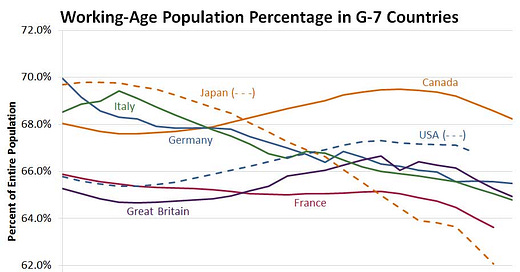There was a war cry when the industrial revolution was just getting started.
In England, Ned Ludd is said to have broken a couple of stocking frames in a fit of rage from whom we get the word Luddites. Luddites were breaking textile machines because they felt the machines would take jobs away. Across the channel, in France, a group of angry textile workers were throwing their wooden shoes (called Sabot in French) into the machines to jam them up giving us the word Sabotage.
The global population has increased 15 folds since the dawn of the industrial revolution but more people are employed today than ever were, how?
The Industrial Revolution was not about replacing the worker, but about replacing skill.
The machines made it possible for factories to recruit unskilled workers and put them on the job. You no longer had to be a craftsperson to produce crafts. All you had to know was how to operate the machine.
In many ways, Artificial Intelligence is also being used to reduce the amount of skill required.
If an organisation must vet 500 resumes. People are required who can understand their qualifications, skill sets and the match for a particular position and then place them. An AI system will do this based on preset algorithms. The HR now only need to look at the resumes that the system has selected and pass them on to the appropriate person, perhaps based on the ratings.
Over the long arc of time, it is clear that the only use of technology is to de-skill a person and then pay them less. This aligns perfectly with capitalism which is only concerned with growing the pie for shareholders. The other stakeholders - employees, environment, society, etc are only there to serve the financial needs of the shareholders.









